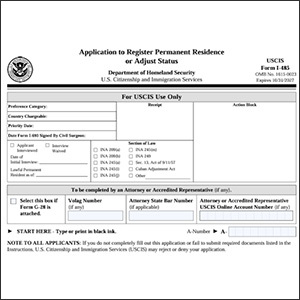U.S. immigration law allows certain U.S. citizens to file immigrant petitions for their parents to immigrate to the United States. This process falls under the immediate relative category, meaning there are no annual visa limits or waitlists, but eligibility depends on a few key factors.
First Things First: Who Qualifies As A “Parent” Under Immigration Law?
- Your birth certificate (Were your parents named at the time of birth? Were you adopted?)
- Marital status of your parents (Were they married when you were born?)
- Living arrangements or legal/physical custody history (Did you live with them? Was there a legal separation?)
- Your place of birth (Were you born in the U.S.? Were your parents abroad at the time?)
Each of these affects how you prove the relationship, especially when petitioning for a father if he wasn’t married to your mother at the time of your birth, or for stepparents or adoptive parents.
Key Eligibility Requirements
To sponsor your parents:
- You must be a U.S. citizen (green card holders can’t petition parents).
- You must be at least 21 years old.
- You must prove the parent-child relationship through valid documentation.
- You must submit separate petitions for each parent — one for your mother and one for your father.
What Is The Process Like?
Here’s a simplified breakdown:

- Speak with our office to confirm that you qualify to petition for your child, and that your child is eligible to receive a family-based visa. Based on each of your family, immigration, criminal, and employment histories, there may be factors that could affect eligibility.

- Gather the necessary documents for your case, such as evidence of relationship, biographical information, and other relevant legal documents.
- At our office, we work to prevent unnecessary delays by providing each client with a personalized checklist tailored to their specific case. These checklists outline all required documentation and are delivered electronically via email and text message alerts for convenience.
- To help clients stay on track, we also send regular reminders until all items are submitted and the file is complete, which ensures a smooth and timely preparation process.

- File Form I-130 (Petition for Alien Relative) for each parent. This is where you will submit proof of your U.S. citizenship and evidence of your parent-child relationship.
- At our office, we assist families with the completion of the I-130, Petition for Alien Relative and the submission of all required supporting documents. Our goal is to ensure that every section of the petition is completed thoroughly and accurately, and that all documentation meets current government standards.
- This tailored support significantly reduces the risk of having the petition rejected, denied, or delayed by a Request for Evidence (RFE)—helping couples avoid unnecessary setbacks and improving their chances of a smooth and timely adjudication process.

- If your parent is already in the U.S. with inspection, you may also file Form I-485 for adjustment of status and submit an immigration physical/medical exam. This allows your parent to obtain a Green Card without traveling abroad to attend a visa interview.*
- If your parent is not in the U.S. or did not enter the U.S. with inspection, they will need to submit the DS-260 online visa application on the National Visa Center’s website.

- Your parent will be scheduled for an adjustment of status interview at their local USCIS Field Office. Your parent should be prepared to answer questions regarding their own and your family background, immigration history, criminal record, and employment information.
- If your parent is not in the U.S., they will need to attend a visa interview at a U.S. consulate or embassy abroad.
Common Pitfalls To Avoid
- Not including the correct supporting evidence for parent-child relationships in cases of unmarried parents.
- Overlooking previous immigration violations or visa denials that could complicate the case.
- Assuming that step or adoptive parents qualify without meeting specific legal definitions and timelines.
Advice & Final Thoughts
Bringing a parent to the U.S. can be a meaningful and emotional milestone, but it’s important to approach the process with clarity and preparedness. Every family is unique, and the relationship between a child and parent may look different on paper than it does in life.
If you’re unsure whether your situation qualifies, or if your documentation may raise questions, consider speaking with an immigration attorney who can guide you through the process and strengthen your petition.
For more information on How do I bring my parent to the United States as a U.S. citizen a consultation is your next best step. Get the information and legal answers you are seeking by calling (281) 777-1236 today!

Call For A Free Consultation*
(281) 777-1236
